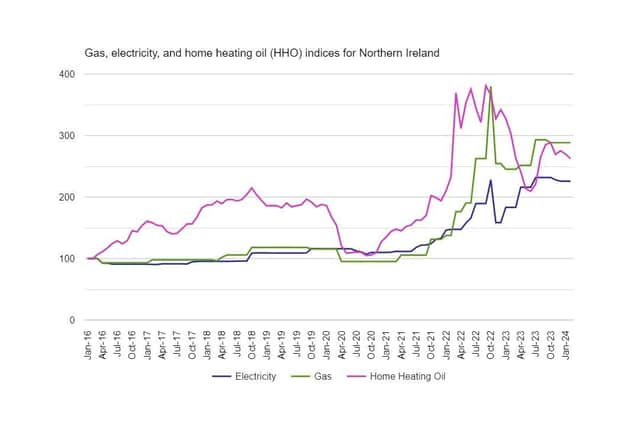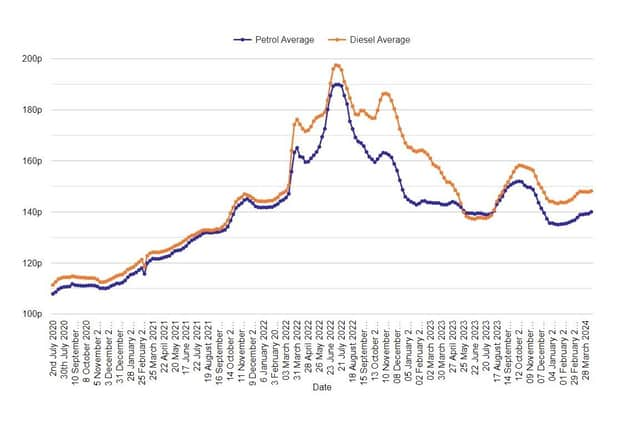Energy prices in Northern Ireland look stable as Ofgem enforces a dip in cost across Great Britain
and live on Freeview channel 276
On Monday Ofgem – the body which regulates the energy industry in England, Scotland and Wales – announced it was effectively lowering the price of gas and electricity for GB households.
This move took the average household energy bill there to its lowest point in two years.
Advertisement
Hide AdAdvertisement
Hide AdIt did this by lowering its "energy cap" – the maximum amount which companies can charge per unit of energy.


This means "the price of energy for a typical household that uses gas and electricity and pays by Direct Debit will go down by £238", it said.
But Ofgem does not cover Northern Ireland, so its cut does not apply here.
What the available figures for Northern Ireland do show is that prices in electricity, gas, and home heating oil all peaked in autumn 2022, plunged into a deep trough, then rebounded – but have flattened off over the last several months.
Advertisement
Hide AdAdvertisement
Hide AdGas and electricity prices have been more-or-less steady since summer 2023, whilst the price of home heating oil has been on a general downward trajectory since October.


They are all still significantly higher than mid-2020, when the huge spike in price began taking effect.
Home heating oil is by far the most volatile of these three energy sources.
At its peak, the price for 300 litres of it in Northern Ireland was about £409. That was back in March 2022.
Advertisement
Hide AdAdvertisement
Hide AdThe latest price for a 300 litre consignment is just under £210, with the cost having fallen gently over the past few months.
The picture is much the same for vehicle fuel.
In Northern Ireland, the Consumer Council said that petrol and diesel costs peaked during July 2022 (at 189.9p per litre and 197.5p per litre, respectively).
Since then it has come down in fits and starts, and has been steady since the end of winter (with the cost of a litre of diesel now standing at 148p, and petrol now standing at 140p).
Rather than Ofgem, NI’s energy market is regulated by a body simply called The Utility Regulator. Neither it nor the Consumer Council could be reached yesterday.